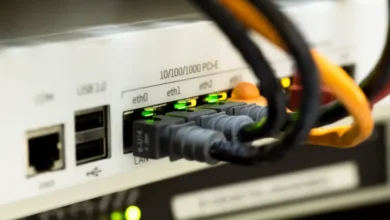Upgrading VPN? Consider These 6 Factors Before Switching it Up
Like every other technology, VPN and security provided by it are evolving too. For thriving businesses, switching to an advanced VPN is an appealing idea. Because who wouldn’t want to get better information protection for themselves and their clients? In this guide, we’ll let you know why this is important to upgrade your vpn.
Upgrading to a new VPN is not an easy task. Your purchase will affect the quality of security for your information. If you want to be satisfied with your upgrade, there are several factors which you should consider when getting a new VPN. Let’s answer some questions that may influence your decision.
Does the VPN Have a Kill Switch?
Your VPN protects your information and ensures security only when it is active. But what happens when your VPN connection drops or crashes? Under normal conditions, your computer switches back to the IP address of your internet service provider. What does it mean when this happens? Your information is exposed to your provider as well as malicious parties. It is vulnerable and potentially at risk then. Luckily, some VPNs provide a solution for this. It is called a kill switch.
Kill switch disconnects your internet connection in case your VPN disconnects. It also prevents your computer from connecting to any unsafe public WiFi. Kill switch’s automatic function provides protection when you are unaware of what’s happening in the background. But the kill switch is not available in all VPNs, so you might want to select a provider that ensures complete protection at all times. Using DigitalSupermarket, you can see which providers fit your company’s scalability needs by comparing multiple VPNs and their features as well as pricing plans.
Where is the VPN Provider Located?
You might be wondering why the provider’s location is important? Most companies are only concerned with the service provided, and while the location isn’t always a primary concern, it’s just as important. The provider’s location adds complexity to the security. Some countries have laws that require providers to share the available data of their users.
Although some companies aren’t worried about data leaks, knowing that your provider is absolutely reliable and safe to use can offer peace of mind even if your business doesn’t deal with sensitive information.
How Many Device Connections Does The VPN Allow?
Would you want your VPN to be on your mobile phone? And of course your laptop too, right? You send business emails through it. Your employees also need access and not just on their office computers but home systems as well.
Count the number of people who will be using VPN and then multiply it by 3 to gauge the number of devices that may need an active connection at all times. Knowing the count and device types can help you narrow down your choices since some VPNs provide only limited connections while others may offer more.
How Many Server Locations and Connections does the VPN Offer?
VPNs with geographical diversity have the upper hand over one with limited server spread. The more diverse the server options are, the more websites you have access to. You can switch to any country’s server to interact with clients and stakeholders while managing your business activities without a security threat. Multiple options to select your temporary IP address also provide added security. Read more about 5 Best Free VPN Providing Sites You Should Never Miss Out.
Another considerable factor related to the server offered by the VPN is the server connection available. If VPN A has 10 servers spread out compared to VPN B, which has 20 servers within the same countries, then B is a better option. Server connections act similar to WiFi connections when it comes to speed. The more the connections with one server, the slower it will be. Thus, you should go for a VPN with multiple locations and connection options.
What Compatibilities Do You Have To Consider?
Some VPNs do not work on all devices and platforms. The variety of operating systems can be a limiting factor when selecting a VPN. You have two options in this case. Number one: make sure you know all your devices and their working environments and match them with the VPN’s workable operating system. Number two: select a more versatile VPN. Do not limit yourself to a VPN that works just with your current devices because you might switch in the future.
Are Payments and Policies Flexible?
No matter how good the free VPN looks, it’s best to avoid it. Why would a free VPN provide you security when it can sell your information for money instead? It would be like entrusting a robber with the bank security. With a paid provider, your VPN billing can be a monthly or yearly subscription, and you can find your ideal pricing plan when comparing them. Find the one that fits your budget best. Moreover, If you want to further protect your information, opt for payment options other than a credit card. You might want to see the billing policies of the VPN provider and see if they accept gift cards, crypto, or other forms of payments. Some companies even allow you to pay through cash!
Final Thoughts:
VPNs make protecting your information easier. By encrypting data and keeping your network activity hidden, your business operations become seamless, not to mention secure, anonymous, and efficient.
New features and new VPNs are constantly being introduced in the market and cater to companies of all sizes and types. Regardless of the industry, you operate in, VPN can increase your data security and offer you more privacy.
From knowing the origin country of the provider to understanding policies and legislations, there are several important factors to size up before making a final decision to invest in a VPN or upgrade to a new provider. You would want to check the server connections and particulars, as well as payment plans and options for scalability, to make an informed decision. Protecting your online identity is an important task that requires a thorough evaluation, and we hope this article helps you achieve that.




